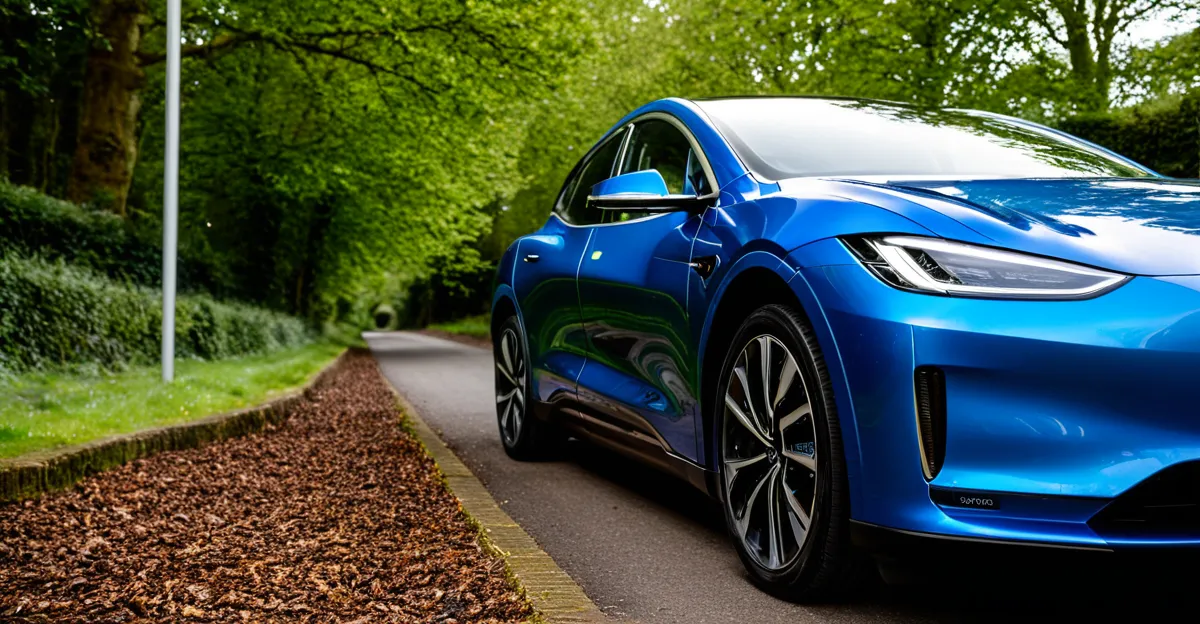Impact of EV Adoption on the UK Automotive Sector
The electric vehicle adoption UK has accelerated sharply, with EV sales now accounting for a significant percentage of new car registrations. As of recent data, EVs represent around one in four new vehicles sold, underscoring a clear shift in consumer preferences and market dynamics. This surge is driven by several key trends, including government incentives, technology improvements, and growing environmental awareness.
The automotive industry impact is evident, as established car manufacturers adapt production lines to meet rising EV demand. Traditional internal combustion engine (ICE) vehicles are gradually declining in market share, creating challenges but also fresh opportunities for innovation. UK car industry trends show a realignment toward electric drivetrains, battery integration, and sustainable materials.
In the same genre : How is the UK automotive industry innovating in electric vehicles?
Meanwhile, legacy manufacturers face immediate pressures to innovate or risk losing their footing to newer players focusing exclusively on EVs. This realignment affects supply chains, employment patterns, and regional economies within the UK. Understanding these shifts provides insight into how the automotive sector will evolve as electric mobility continues its rapid advance.
Changes in Manufacturing and Supply Chains
The UK automotive manufacturing sector is undergoing a significant transformation driven by the rise of electric vehicles. Unlike traditional internal combustion engine production, electric vehicle production demands a fundamental shift in processes. Manufacturers must pivot towards assembling complex battery packs and integrating electric drivetrains, which differ markedly from conventional engine assembly lines.
This might interest you : What is the role of AI in the future of UK automotive manufacturing?
This shift heavily impacts parts suppliers who previously focused on engines, exhausts, and fuel systems. Now, the EV supply chain transformation centers on battery cell production, power electronics, and electric motors. UK factories are adjusting their facilities to incorporate advanced robotics and battery assembly lines. Major investments are being funneled into domestic battery manufacturing capabilities to reduce reliance on imports, thus strengthening the UK’s competitive position in the global EV market.
Such changes in manufacturing also mean retraining staff in new technical skills and retooling plants. The result is a more integrated and specialized production environment. These adjustments illustrate how the UK automotive manufacturing sector is actively evolving to support the expanding electric vehicle market, ensuring resilience and sustainability in the face of shifting demands.
Workforce and Employment Implications
The transition to electric vehicle production significantly reshapes automotive jobs UK, creating both new roles and eliminating others. As companies pivot from traditional engine manufacturing to electric drivetrains and battery assembly, the demand for certain skills shifts markedly. For example, jobs related to complex battery production and software integration are expanding rapidly.
This evolution means the EV employment impact is nuanced. While some conventional roles, particularly in engine and exhaust manufacturing, decline, new positions emerge in high-tech areas like battery management systems and electric motor design. The question arises: What skills are most needed in the evolving UK automotive workforce? The answer highlights the rise in demand for expertise in electrical engineering, software development, and battery technology, alongside conventional mechanical skills.
Regions heavily dependent on traditional automotive manufacturing face employment challenges but also opportunities. Training programs and re-skilling initiatives are critical in equipping workers with relevant competencies. For instance, UK automotive hubs are investing in apprenticeships targeting electric vehicle production technologies. Overall, the skills demand in EV sector is reshaping industry employment patterns, requiring proactive adaptation to maintain workforce resilience and capitalize on growth opportunities.
Policy, Incentives, and Regulatory Environment
The UK government EV incentives play a pivotal role in accelerating the electric vehicle adoption UK. Key policies include purchase grants, reduced vehicle taxes, and lower London Congestion Charges for EVs. These measures directly reduce the upfront and operational costs of owning EVs, encouraging more consumers to transition from petrol and diesel vehicles.
What are the main automotive policy UK regulations impacting this shift? The government has established strict emissions targets and is phasing out the sale of new petrol and diesel cars by 2030. These regulations compel manufacturers to increase their EV production lines rapidly, influencing the automotive industry impact by hastening technological innovation and restructuring.
Public funding has also been channeled into expanding charging infrastructure and supporting battery research projects. Tax benefits for businesses investing in EV fleets further promote adoption. Together, these policies and incentives create a robust environment that supports the electric vehicle adoption UK trajectory. By continuously updating regulations and providing financial support, the UK maintains momentum in transitioning to a low-emission automotive market while helping manufacturers and consumers navigate the evolving landscape.
Infrastructure Developments for Electric Vehicles
The EV charging infrastructure UK is expanding rapidly to meet the growing demand fueled by the electric vehicle adoption UK trend. As EV sales increase, accessible and reliable charging points become crucial for consumer confidence and widespread adoption. Currently, the UK has thousands of public chargers, but the need for a denser network, particularly fast chargers, remains a top priority to reduce range anxiety.
Significant investments are flowing into the UK automotive infrastructure to support this expansion. Collaborations between government bodies, private companies, and energy providers aim to deploy chargers across urban and rural locations, ensuring equity of access. Moreover, developments include installing chargers in residential areas, workplaces, and motorway service stations to cover diverse user needs.
Challenges also lie ahead: grid capacity limitations and the need for smart charging solutions to manage peak loads are pressing concerns. The electric vehicle charging network must adapt with innovations such as vehicle-to-grid technology and enhanced battery storage. These infrastructure upgrades are vital for sustaining the UK’s electric mobility future, making EV ownership practical and convenient across the country.
Opportunities and Challenges for the UK Automotive Industry
Balancing Risk and Reward
The rapid electric vehicle adoption UK creates significant automotive industry opportunities UK while presenting notable EV industry challenges. For carmakers and suppliers, a major opportunity lies in diversifying product lines to include EVs, tapping into expanding markets domestically and abroad. The shift enables development in cutting-edge battery tech, power electronics, and sustainable materials, leading to innovation-driven growth.
However, challenges abound. Legacy manufacturers face intense pressure to transform production techniques and supply chains swiftly, or risk losing market share to agile newcomers focused solely on EVs. Limited access to raw materials for batteries poses supply risks. Additionally, uncertainty over future regulations and fluctuating consumer incentives introduces financial unpredictability.
Industry leaders emphasize that seizing the electric mobility future demands strategic partnerships and investments in research. Businesses adopting flexible, tech-savvy approaches tend to outperform. Moreover, adapting workforce skills and embracing digitalization help mitigate risks from disruption. In summary, the UK’s automotive sector stands at a crossroads where innovative responses to changing market forces will define success in the evolving electric vehicle landscape.




